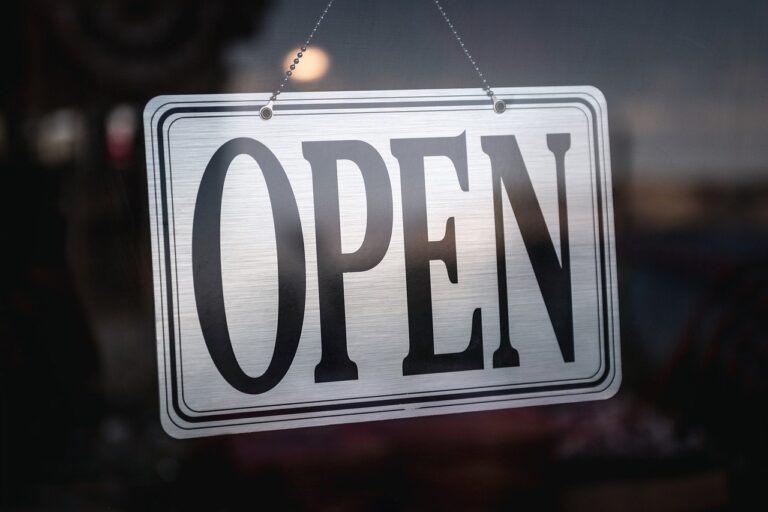By Bill Barth

Not long ago a group of retired has-been editors got together in Madison for golf, burgers and beer. Let’s just say, the burgers and beer were good.
It was an interesting collection of career journalists who ran newsrooms in several Wisconsin cities – Milwaukee, Madison, Eau Claire, Watertown, Wisconsin Rapids, Janesville and Beloit.
There were plenty of old war stories to banter about, but a recurring theme revolved around the tough times facing news organizations in Wisconsin and around the country. Lots of questions. Lots of laments. Damn few answers.
That conversation was high on my mind last week when I spoke to a great group of ladies over lunch. The Beloit Intermediate Women’s Club, for some unfathomable reason, asked me to come and talk about the state of journalism in our modern era.
Allow me to pause and give the same disclaimer I said in the speech. I’m just an old retired guy. I do not speak for the Beloit Daily News, Adams Publishing, the Lake Geneva Regional News (where my wife and I do a tourism column), or the Wisconsin Newspaper Association which regularly circulates my ramblings across the state. My thoughts are purely my own.
There may be some value, however, in encouraging readers to ponder what has been happening not only to newspapers large and small, but also to radio and television news operations. To that point, may I suggest the issue isn’t just important to the folks who own, operate or work at news-related companies. Rather, it’s a critical issue for Americans as they tiptoe around the divisive minefield that is modern politics, and collectively chart a future path that will preserve freedom and democracy. Or not.
I won’t go into the long list of statistics and anecdotes covered in the speech – no sense boring readers too much. It’s illustrative, though, to cite a few.
- About three years ago, for the first time, digital advertising spending surpassed for the first time ad buys in newspapers and television.
- Google and Facebook pocket more than half the country’s ad spend.
- In the past 20 years newspaper advertising revenues have dropped more than half.
- Regular, subscriber-based readership has declined as well. In 1984, more than 63 million Americans subscribed to a daily paper. By 2020 that was 24 million. Mind you, when online readership is considered along with readers who pop in here and there and buy single-copy papers, many millions still consume newspaper journalism. It is, however, a much more volatile base than the days when almost every household subscribed for home delivery.
- One sad consequence has been the disappearance of newspapers, often those in relatively isolated geographic areas. About 2,000 have closed over recent decades, spawning the term “news deserts” where no reporters or editors routinely cover news. Or sports. Or anything else.
- The net result has been a significant reduction in journalism jobs across the country. In 2007, about 115,000 journalists gathered news in America. By 2020 the number had dropped to 85,000.
- Even the biggest players – New York Times, Wall Street Journal, Washington Post – have been impacted. For example, the Washington Post recently announced it will cut 250 jobs.
Bear with me, while I mount the soapbox for a couple minutes. I’m a big believer in the theory embodied in the words of that old song that goes something like this, “Shin bone’s connected to the knee bone.” What’s happening to news reporting is also happening to our civic lives.
Community clubs struggle to keep up membership. Church attendance is way down. Most people never attend a city council meeting, a school board meeting, a booster club meeting. Heck, neighbors don’t even know neighbors. The fabric that binds communities together has frayed and become ragged, on a good day.
I always believed good journalism was a connective tissue, reflecting a community’s deep reality. The best journalism is practiced, in the old saying, without fear or favor. That means the good, the bad, and the ugly. And it means telling the truth even if nobody wants to hear it.
Today, lots of people reject uncomfortable or inconvenient facts. So-called “news” organizations – think MSNBC for lefties, Fox for righties, and even more deeply biased outlets online – make sure users’ preferred storylines are never challenged. That’s not news. It’s propaganda.
I give all the credit and cheers I can muster to today’s journalists, who continue to forge ahead in an unforgiving business climate, where it’s not only tough to make a buck but it’s also likely they’ll be subjected to insults and abuse just for telling the truth.
I’ll pose a question I presented to the ladies in my audience: “Who calls out the abuses of the powerful if the watchdog is dead?”
And this, in closing: “The people in this room, their families, friends, strangers and everybody, will decide how it all turns out. Journalists can’t save journalism.”
Bill Barth is the former Editor of the Beloit Daily News, and a member of the Wisconsin Newspaper Hall of Fame. Write to him at bbarth@beloitdailynews.com.



